West's name-calling only intensifies contradictions
Updated: 2016-03-15 07:37
(China Daily)
|
||||||||
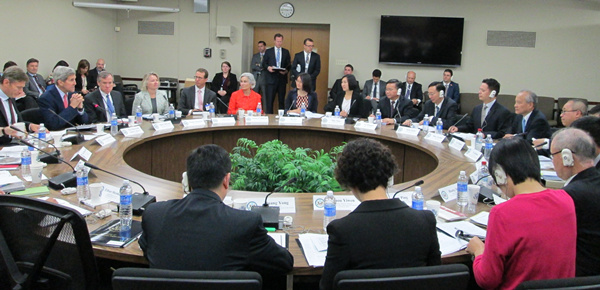 |
|
US Secretary of State John Kerry (second from left sitting in the roundtable) and Chinese Ambassador to the US Cui Tiankai (second from right in roundtable) are among several dozen Chinese and US government officials attending the opening ceremony of the 19th round China US Human Rights Dialogue held in Washington on Aug 13-14, 2015.[Provided to China Daily] |
Impatience to hear and eagerness to pass judgment are two things that ruin a dialogue. A case in point, unfortunately, is the disappointing image painted of China's human rights situation by 12 Western countries in Geneva last week.
In response to their joint allegation of China's "deteriorating" conditions, the Chinese government reminded the accusers to clean their own houses first, retorting that China is a sovereign "country of rule of law" whose internal affairs brook no interference from other powers.
A face-off like this forebodes a tough time ahead, and risks throwing the China-West dialogue on human rights back to its starting point.
The dialogue has always been a difficult one. At times, the two sides appear to disagree on whether sovereign concerns override human rights, especially civil rights, and whether the rights to subsistence and development precede the right to democracy, as China insists.
But this is only one side of the issue. On the other side, China's critics have seldom acknowledged the progress it has made in human rights society-wide.
With economic development, more formerly under-employed rural people have found jobs in cities, more women are earning pay equal to men, and more people have been provided social security. The general improvement in ordinary people's living and working conditions hardly needs specific documentation.
From a historical perspective, the legitimacy of the Chinese proposition should be even easier to understand judging from its complex legacy, especially its large, multiethnic population that includes adherents of nearly all the major religions. A collective agreement is needed as the anchor for rule of law and society.
The Chinese government also admits that, like in any other country, there are individual cases of contestable grounds and even of downright injustice.
In the last few years, as the country's leadership has engaged in an unprecedented anti-corruption campaign, its justice system has also been busier than ever in correcting the wrongful convictions of the past. As some officials who once wielded extensive power are brought down for investigation, other individuals who once were falsely tried have been judged innocent, and paid due compensation in the name of the State-although it would be premature to claim total success in either process.
These considered, the allegation that China's human rights condition has deteriorated is hard to accept on the Chinese side. Indeed, it can be taken as an outrageous insult to its anti-corruption campaign and efforts to redress the judicial wrongs in the past.
- Washington's human rights stance 'serves its own interests'
- Experts urge US to stop politicizing human rights
- China defends human rights in judicial practice
- China refutes US-led criticism on human rights record
- Human Rights Watch once again shows its bias
- China, US law experts discuss human rights issues
- Reform boosts human rights protections
- US peddles its biased human rights views again despite own flaws
- Germanwings crash caused deliberately by mentally ill copilot: BEA
- Second car bomb in a month kills 34 in Turkish capital, Ankara
- German voters batter Merkel over migrant policy
- Myanmar's ruling party secures 2 seats of presidential candidates
- 'Hearts in pieces' 5 years after tsunami hits Japan
- Kim Jong-un orders nuclear strike means to be ready

 The world in photos: March 7 - March 13
The world in photos: March 7 - March 13
 China's booming IT industry helps drones fly high
China's booming IT industry helps drones fly high
 This 'mermaid' left broadcasting for a watery world
This 'mermaid' left broadcasting for a watery world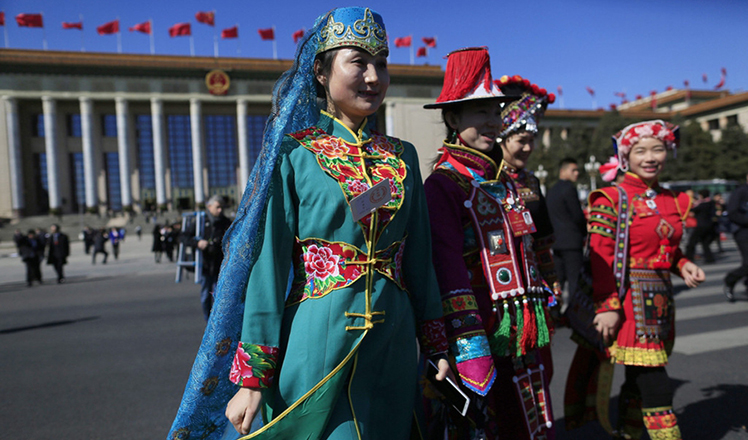
 Snapshots at Two Sessions
Snapshots at Two Sessions
 Beijing sees blue sky during the two sessions
Beijing sees blue sky during the two sessions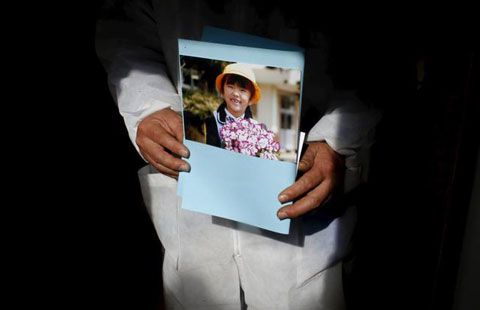
 Fukushima five years on: Searching for loved ones
Fukushima five years on: Searching for loved ones
 Robots ready to offer a helping hand
Robots ready to offer a helping hand
 China to bulid another polar ship after Xuelong
China to bulid another polar ship after Xuelong
Most Viewed
Editor's Picks

|

|
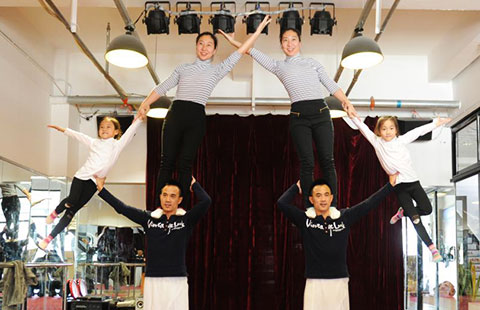
|

|
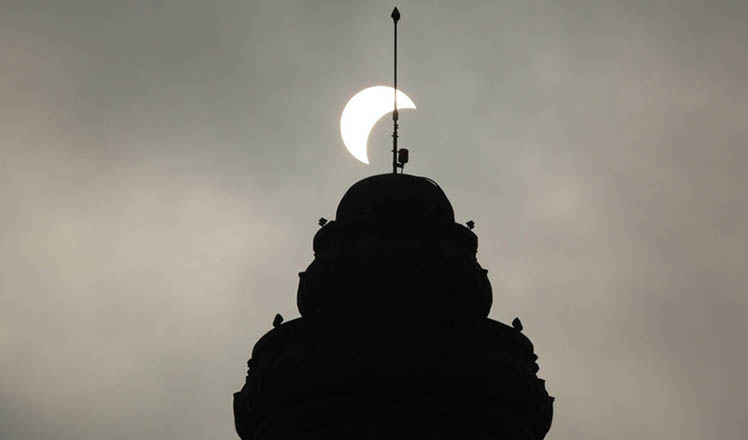
|

|
Today's Top News
What ends Jeb Bush's White House hopes
Investigation for Nicolas's campaign
Will US-ASEAN meeting be good for region?
Accentuate the positive in Sino-US relations
Dangerous games on peninsula will have no winner
National Art Museum showing 400 puppets in new exhibition
Finest Chinese porcelains expected to fetch over $28 million
Monkey portraits by Chinese ink painting masters
US Weekly

|

|








